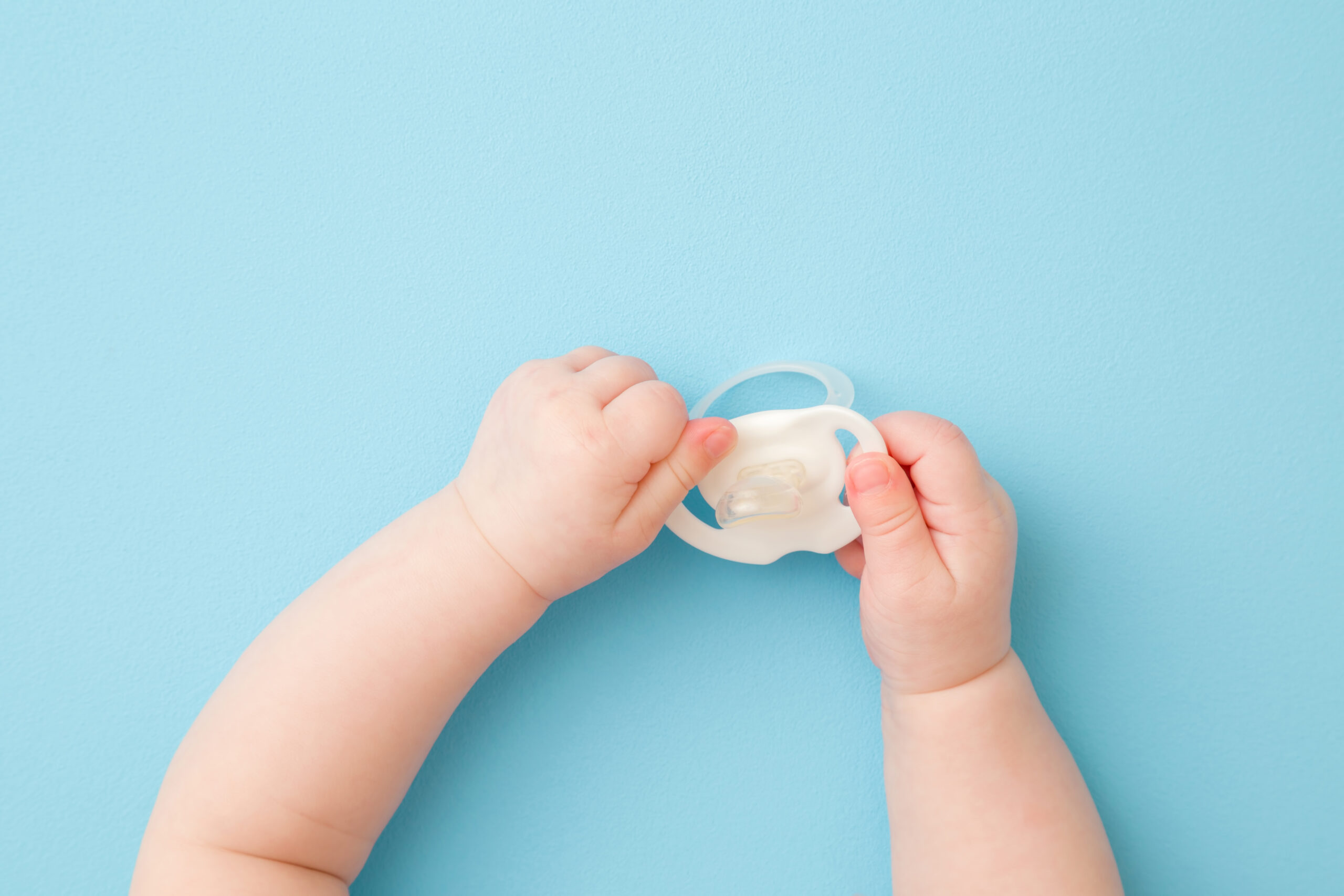While thumb sucking and pacifier use is a natural reflex for infants, prolonged sucking can exert pressure on their teeth and jaws, negatively impacting their bite and increasing their risk for future dental issues. If your child regularly sucks on their thumb, finger, pacifier, lips, or tongue it could potentially impact the growth of their teeth or jaw, with some bone changes noticeable as early as 18 months of age.
Luckily, a trusted orthodontist can catch these problems early and effectively correct them, ensuring your child’s teeth and jaws develop correctly.
Common Orthodontic Problems Caused by Pacifiers
- Protruding front teeth: Constant pacifier use or thumb sucking can cause the front teeth to stick out. Protrusive front teeth may make it difficult for children to comfortably close their mouth and lips, causing speech problems and increasing the risk of injury or trauma to the front teeth.
- Open bite: When the teeth do not overlap, your child has an open bite. This incorrect alignment can create swallowing or speech problems.
- Crossbite: Frequent thumb sucking can cause the upper teeth to fit inside the lower teeth. If a crossbite is not corrected, the jaw can shift to one side, causing lopsided jaw growth and future dental issues.
How to Address Prolonged Thumb Sucking or Pacifier Use
When trying to stop your child’s thumb-sucking habit or excessive pacifier use, consult your AAO orthodontist. They will be able to identify any orthodontic-related issues caused by the oral habit and offer early treatment options to correct any problems that may have arisen. With their expertise in dentofacial orthopedics, orthodontists can help your child’s jaws grow and develop in the correct positions.
Seeing an AAO orthodontist at a young age can:
- Correct harmful oral habits
- Guide jaw growth
- Lower the risk of trauma to protruded front teeth
- Guide permanent teeth into better positions
How to End Your Child’s Oral Fixation
Children often stop using a pacifier or sucking their thumb between the ages of 2 and 4 years old. However, if the habit persists, there are several methods you can use to stop the oral fixation.
- Specialized Liquid Nail Polish: This liquid nail polish tastes bitter and discourages children from putting their fingers in their mouths.
- Bandages or Wraps: Loosely wrap your child’s finger(s) with an elastic bandage at night to help them avoid putting their hand in their mouth while sleeping.
- Cut the Pacifier: If your child is between 3 and 4 years old and still using a pacifier, you can cut the rubber tip with scissors to break the suction seal and eliminate the soothing sensation.
- Consult Your Orthodontist: If other methods fail to correct the oral fixation, consult your AAO orthodontist. Certain dental appliances may help keep your child from sucking on their fingers and can prevent future jaw problems.
Correct Your Child’s Bite with an AAO Orthodontist
An AAO orthodontist can help you achieve a healthy, beautiful smile at any age. Orthodontists are experts in dentofacial orthopedics – properly aligned teeth and jaws – and possess the skills and experience required to give you or your child a smile you both will love. Find an orthodontist near you to schedule a consultation with a specialist today.



